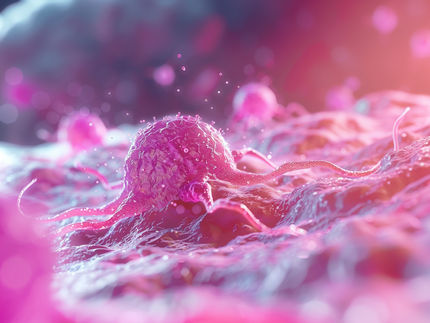Biotech companies in the future among top 10 drug sellers / winners & losers of the pharmaceutical industry in the next decade
Of today’s top ten best-selling drugs only four will be left over in 2012
Advertisement
A recent study of the pharmaceuticals industry views Roche/Genentech as the dominant player(s) in the global pharmaceuticals market in the next four years. The projected market shake-up is the result of the patent crisis which currently puts the pipelines of many of the world´s biggest pharmaceutical companies under enormous pressure while also endangering their revenue streams. In their study, strategy consultants from Novumed Life Science Consulting GmbH identified, analysed and compared the 200 blockbuster drugs of the future and revealed Roche/Genentech as well as several “biotech drugs” conquering the top slots.
Of the top 10 among the 200 world wide best selling drugs 2007 only four will continue to occupy a top slot in 2012 as a result of the looming patent expirations. According to the Novumed study Pfizer will be hit hardest. As a result of the patent expiry for their cholesterol drug Lipitor® (Sortis®) in 2010 Pfizer not only loses the exclusivity rights for today’s best selling drug world wide ($US 12,7bn. in 2007), but also forfeits a quarter of their revenues. In 2012, Pfizer will have dropped from the top spot in the list of the world´s top selling drugs. With their epilepsy drug Lyrica®, then their top product, the company will be merely ranked 24th. Besides Pfizer Wyeth’s Enbrel®, Eli Lilly’s Zyprexa®, BMS’s Plavix® and J&J’s Risperdal® will also not be among the top ten block busters anymore in 2012. Only Novartis and Eli Lilly will continue to be present among the top ten therapeutics. Novartis courtesy of the cancer drug Gleevec® (~$US 4bn.) and Eli Lilly courtesy of their anti-depressant Cymbalta (~$US 3,7bn.).
In revenue terms, Roche is predicted to have undergone the most positive development by 2012. With their tumour angiogenesis inhibitor Avastin® the company is expected to market the world´s best selling drug of 2012 (~$US 10,6bn.). In addition, besides Avastin® two other Roche products will be among the world`s top ten best selling drugs: MabThera® (Rituximab®) for non-Hodgkin lymphoma/rheumatoid arthritis in the number three slot and the breast cancer drug Herceptin® at number 4. Together Genentech and Roche are thus likely to generate a total revenue of $US 15,4bn. from Avastin® sales alone.
Besides Genentech, Amgen will also market one of the top ten blockbusters of the year 2012, thanks to predicted Neulasta® sales of roughly US$ 4,3bn. This means that for the first time not only big pharma would be present with entries in the top 10 of the world`s best selling drugs but also two of the three largest biotech companies in the world. Genzyme, the number three, on the other hand, lands with its M.Gaucher drug Cerezyme® and an expected turnover of about $US 1,5 bn. only at position 77.
Yet, even for putative future winners like Roche the times ahead are unlikely to be mere plain sailing. The main reason for this is the fact that the pharma companies will always be likely to suffer from blows the regulatory environment may deal out. In the UK, for example, revenue streams can be crucially affected by the reimbursement recommendations of the National Institute for Health and Clinical Excellence (NICE). Speculations as to the recent refusal of Roche and Merck to cooperate with NICE regarding its cost-benefit analyses of Avastin® and Erbitux® for which both companies expected a negative outcome, underlines the fragility of any predicted future revenue stream. Naturally, negative reimbursement recommendations by NICE would lead to a substantial drop in the respective revenue streams for these two products despite the existence of a considerable demand.


























































